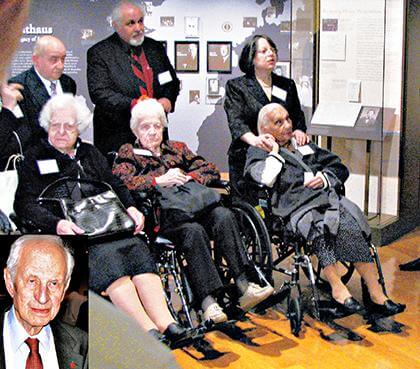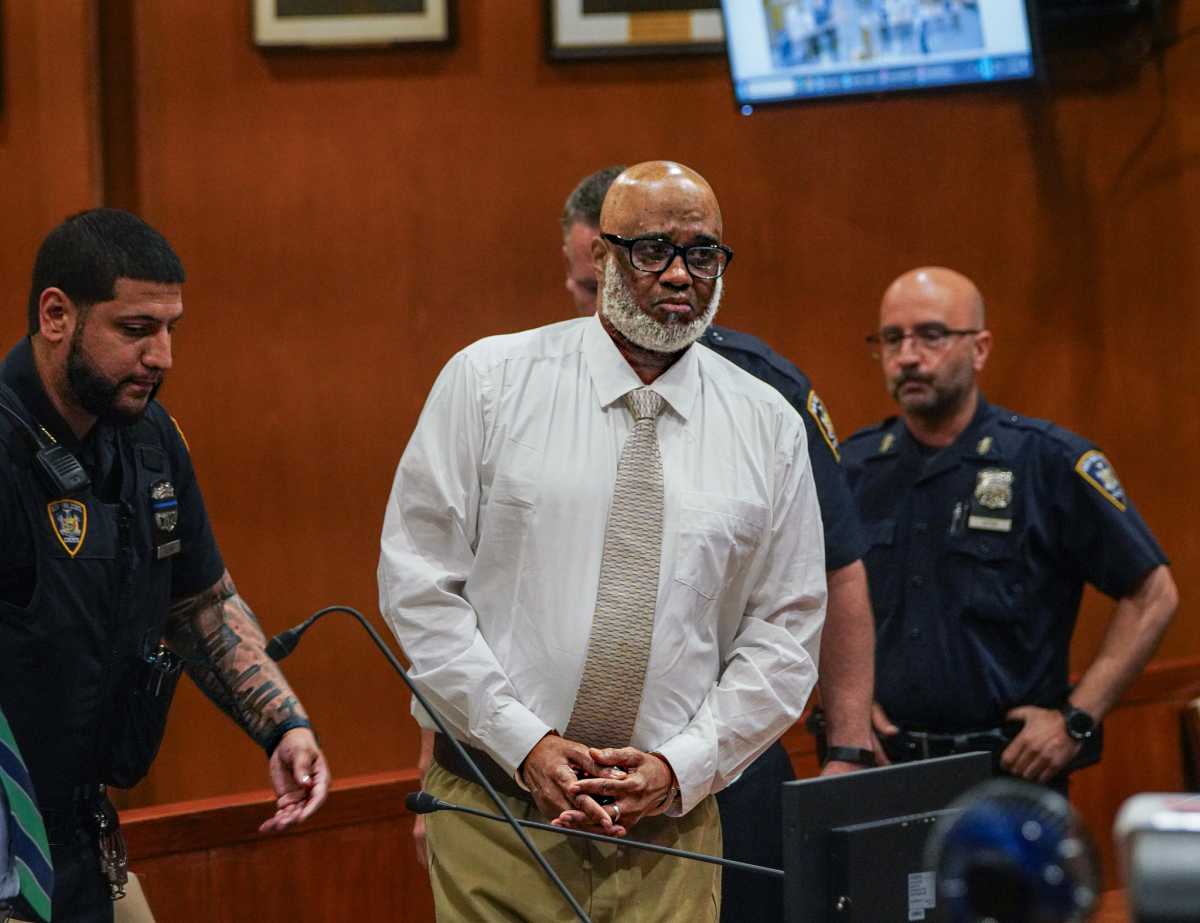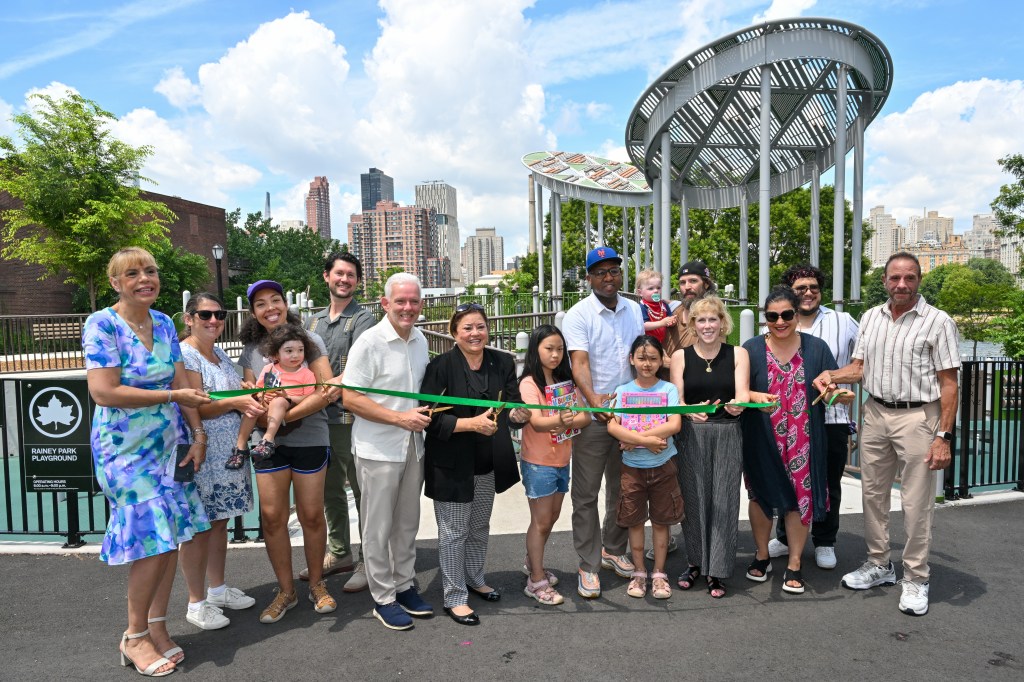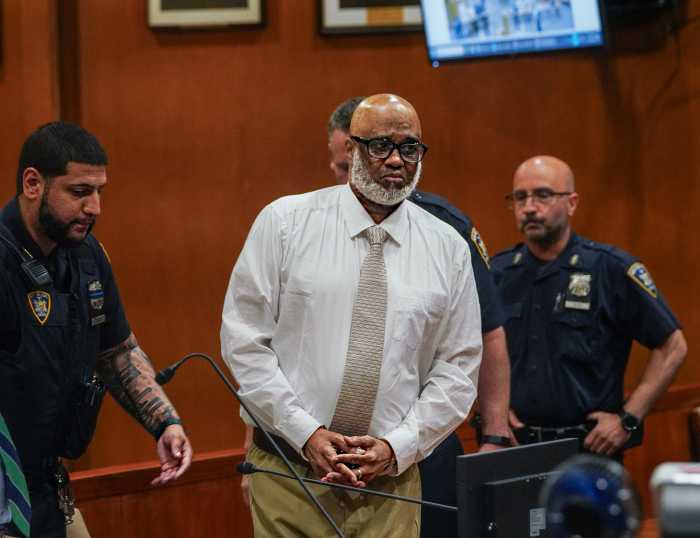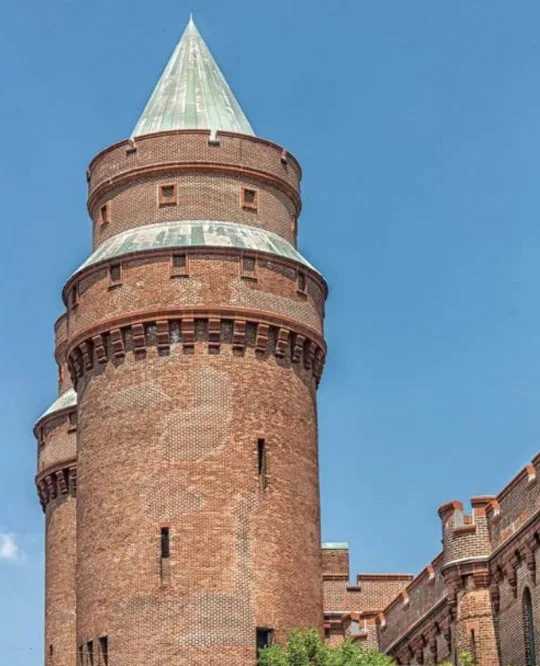By Philip Newman
Four Flushing women, who as children survived the Turkish massacre of Armenians nearly a century ago, were honored last week at a ceremony of gratitude to former Manhattan District Attorney Robert Morgenthau, whose grandfather exposed to the world the Turks’ campaign of “race extermination.”
“It was due to the heroic efforts of U.S. Ambassador [to the Ottoman Empire] Robert M. Morgenthau that the Armenian genocide became known worldwide and its victims received humanitarian assistance from the United States government and American people,” said Dr. Mary Papazian, provost and senior vice president for academic affairs of Lehman College. “We, the progeny of the saved, express our gratitude. Blessed is the memory of the righteous.”
Morgenthau, 90, was presented a plaque of praise from the Armenian people for the “humanitarian efforts of his illustrious grandfather, Henry Morgenthau Sr., U.S. Ambassador to the Ottoman Empire.”
“Ambassador Morgenthau drew the attention of the American government and the world to the attempt at ‘race extermination’ of the Armenian people being perpetrated by what has been termed the Young Turk dictatorship; and the ambassador’s attempts to intercede for the innocent victims,” the citation read.
In his published memoirs, Ambassador Morgenthau related how he told the Turkish prime minister “the world will never forget this horror. You are making a mistake and will regret it. I appeal to you, not as an American or even as a Jew. I appeal to you in the name of humanity.”
Papazian introduced four survivors, who traveled from the New York Armenian Home in Flushing to the Museum of Jewish Heritage in Downtown Manhattan for the ceremony April 21. Papazian read of the horrific acts the Flushing women saw as children during the mass executions in 1915-16 when perhaps as many as 1.5 million Armenians were slain.
The survivors present were Charlotte Kechejian, 97; Oronik Eminian, 97; Arsalo Dadir, 97; and Perouz Kalousdiau, 100.
Papazian said Dadir remembered the day Turks shot and killed 100 people in her village, leaving piles of bodies.
The Lehman provost said Turks came to Eminian’s home in Smyrna, now Izmir in Turkey, and took away her father, whose bloody clothes were later returned to her home. Turks shot and killed her mother and grandmother and smashed her 2-month-old brother against a wall, killing him.
“When Eminian cried out, a soldier struck her in the face with the butt of his rifle,” Papazian said.
The longtime Manhattan district attorney who accepted the plaque is the son of Henry Morgenthau Jr., who was U.S. treasury secretary under former President Franklin D. Roosevelt.
The ceremony was conducted in a section of the museum devoted to the Turkish massacre, including a photo of Turkish soldiers herding hundreds of Armenian men en route to an execution site.
The present Turkish government generally denies wholesale executions were carried out throughout the country, saying there were deportations only in one area to put down a revolution.
One million of the 7 million Armenians worldwide live in the United States, with 50,000 in the New York metropolitan area.
Armenia, a former Soviet country, became independent in 1991. The country is 11,620 square miles in area, slightly larger than Maryland, with a population of 3.3 million and an additional 400,000 Armenian refugees from Azerbaijan and Nagorno-Karabakh.
Reach contributing writer Philip Newman by e-mail at timesledgernews@cnglocal.com or phone at 718-260-4536.

